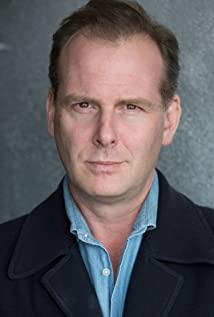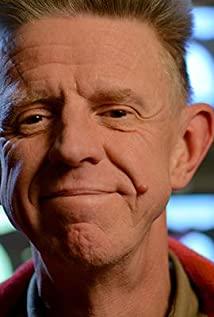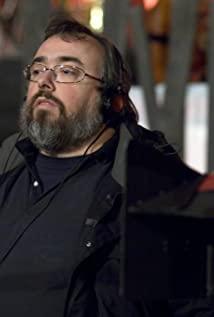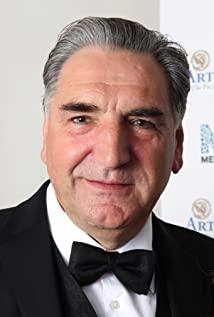Arthur: logic mathematician, but the new book is blatantly anti-logic, that the world is disordered, and philosophy is dead.
Mrs. Eagleton: Martin's landlord, Arthur's wife. Arthur's car killed her husband many years ago.
Beth: Mrs. Eagleton's old daughter, who served her cancer-stricken mother for five years with a lot of resentment. Stupidly impulsive, fell in love with Martin at first sight.
Little Nurse: Martin's squash buddy who once slept with Arthur.
Beth had a deep grudge against Mrs. Eagleton, believing that her mother had imprisoned her freedom. She falls in love with a new tenant, Martin, and asks him vaguely if he should pursue freedom; Martin's casual "you should try it" prompts her to kill her mother. Afterwards, Beth, who was terrified, wrote a note to Arthur for help. Arthur still blames himself for killing Beth's father in a car accident that year, and helps her carry out a series of aftermath.
First, Arthur uses the spelling circle that Mrs. Eagleton was playing with before she died, claiming that the perpetrator was an extremely rational serial killer: the circle is the ancient word 1, the first number in the sequence, so people will die. Arthur further told the police of his speculation: because he had declared in his new book that philosophy is dead, the world is irrational, and murder is irrational; so the killer probably knew about his relationship with Mrs. Eagleton and wanted to disprove it.
In order to complete this self-directed killing logic, Arthur kills a dying patient while visiting a mad mathematician in the hospital, and leaves a second symbol: Pisces 2. Then he subtly caused the emphysema old man who played the triangle iron in the Beth band to die naturally, giving the third number in the sequence: triangle 3.
In this case, Martin was able to get close to his idol Arthur, and found that the little nurse who was a friend of the gun had also slept with Arthur, and had complex and subtle feelings for Arthur. Arthur uses Martin's obsession with sequences to help him lie. In the end, Arthur decides to put a stop to the murder by publishing a fourth sequence in the newspaper, but is taken advantage of by a school bus driver at a training school.
The daughter of a school bus driver is terminally ill and is in hospital awaiting an organ transplant. After learning about the previous murders, the driver inadvertently found the fourth number "quaternary 10" in the church book, so he decided to imitate the crime, create a school bus accident, kill ten mentally handicapped children, and get his daughter's organs. Finally Martin found out about it all.
Line
- Murder by reason does not exist in the world. By and large, the rules a serial killer follows are cruel, monotonous and repetitive. It can be determined by psychological analysis, not logical analysis.
- There is no way to find out an absolute truth, an undisputed proposition to help humans answer their questions, so, philosophy is dead. Because "whatever can't be said, we should be silent." It seems that some people don't want to be silent, and you don't seem to agree with Wittgenstein. This means that either you find a paradoxical proposition in Philosophy of Logic, or you have an absolute truth to share with us.
*I believe in pi.
-Sorry, I do not understand. What do you say you believe in?
*Pi, Golden Ratio, Fischer Sequence. The nature of nature is mathematical. There is a hidden purpose in reality, everything is arranged according to a pattern, a plan, a logical sequence, even the smallest snowflake, its structure contains a mathematical principle. So if we can discover the mystical meaning of numbers, we will discover the meaning of life.
-great! Translate his words into British English! We realize that we are facing a new and growing attack from mathematics. As if numbers were pre-existing concepts in reality. In any case, this is nothing new, because man cannot make thought and matter agree, he will give concepts to some form of substance. Because he cannot accept the idea that pure abstraction exists only in our brains. The beauty and harmony of snowflakes is so warm. Butterflies, flapping their wings, caused a hurricane on the other side of the world, and we've been hearing about the butterfly effect for decades. But who really predicted even a hurricane? no one! Tell me, where is the beauty and harmony of cancer? What would make a cell suddenly decide to become a wandering executioner, destroying other cells in a healthy body? who knows? no one. Because we'd rather think about snowflakes, and butterflies, than pain, war, or that book. Why? Because we need to think that life has meaning and that everything goes according to logic, not just random. If I write 2 first then 4 then 6, we are all happy because we know the next is 8, we can foresee, we are not dictated by fate. But, unfortunately, this has nothing to do with truth. Is it not? It's just... fear. It's sad, but that's what it is.
The original work is estimated to be more charming, and the shooting is average; the length of the feature film must be drastic. The case itself is so tangled that it is not suitable for such a complicated narrative.
View more about The Oxford Murders reviews











